Today QxLab’s Dr Abubakr Siddig presented collaborative work on immersive multimedia. As part of the ACM MMSys conference in University of Massachusetts Amherst Campus, the International Workshop on IMmersive Mixed and Virtual Environment Systems, MMVE 2019 is celebrating its 11th edition.
The paper, Fusion Confusion: Exploring Ambisonic Spatial Localisation for Audio-Visual Immersion Using the McGurk Effect, looked at the relationship between visual cues and spatial localisation for speech sounds.
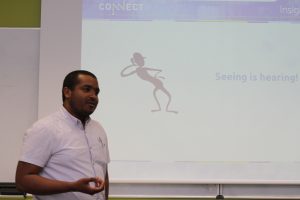
The paper found that the McGurk Effect, where visual cues for sounds override what you hear, occurs for spatial audio but is not sensitive to whether the speech sound is aligned in space with the lips of the speaker.
The research, carried out by QxLab’s UCD based researchers and funded by two SFI centre’s CONNECT and INSIGHT.
Well done to AbuBakr, the presentation and demo were well received by the workshop attendees.
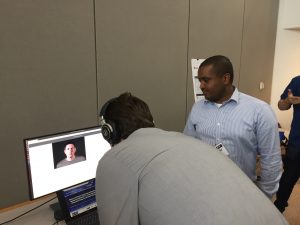

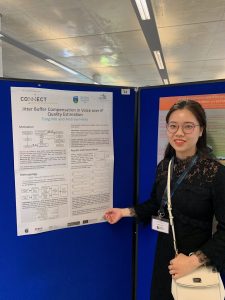 QxLab has two papers at the
QxLab has two papers at the 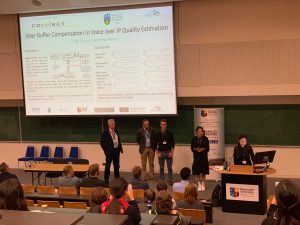
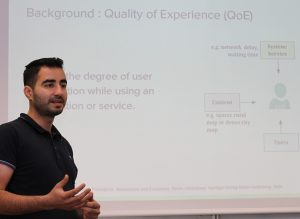
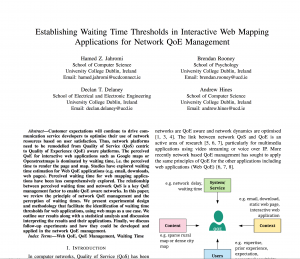 A second paper was presented by PhD candidate Hamed Jahromi entitled, “Establishing Waiting Time Thresholds in Interactive Web Mapping Applications for Network QoE Management.” Hamed’s work looked at the perception of time in web applications. Is an additional delay of half a second noticeable if you have already waited 5 seconds for a Google Map page to load? Time is not absolute and Hamed wants to understand the impact of delays on web applications in order to optimise network resources for interactive applications other than speech and video streaming. This work was co-authored with Delcan T. Delaney from UCD Engineering and Brendan Rooney from UCD Psychology.
A second paper was presented by PhD candidate Hamed Jahromi entitled, “Establishing Waiting Time Thresholds in Interactive Web Mapping Applications for Network QoE Management.” Hamed’s work looked at the perception of time in web applications. Is an additional delay of half a second noticeable if you have already waited 5 seconds for a Google Map page to load? Time is not absolute and Hamed wants to understand the impact of delays on web applications in order to optimise network resources for interactive applications other than speech and video streaming. This work was co-authored with Delcan T. Delaney from UCD Engineering and Brendan Rooney from UCD Psychology.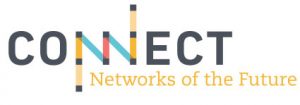

 Last week, at the 11th International Conference on Quality of Multimedia Experience (QoMEX), QxLab PhD student Alessandro Ragano presented our
Last week, at the 11th International Conference on Quality of Multimedia Experience (QoMEX), QxLab PhD student Alessandro Ragano presented our 